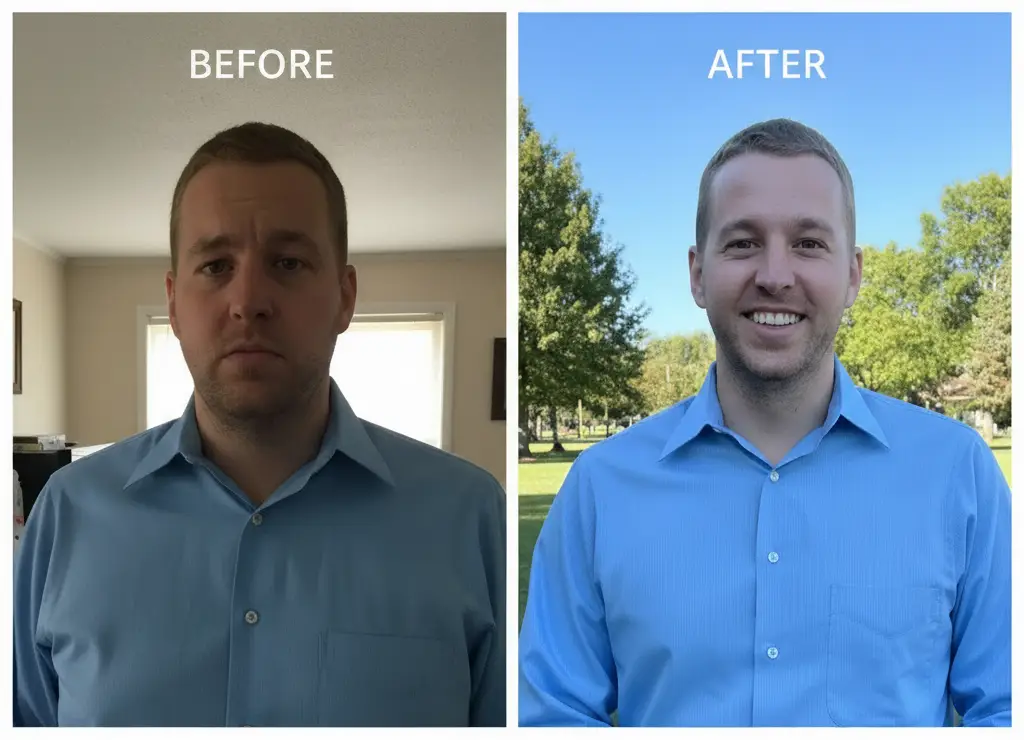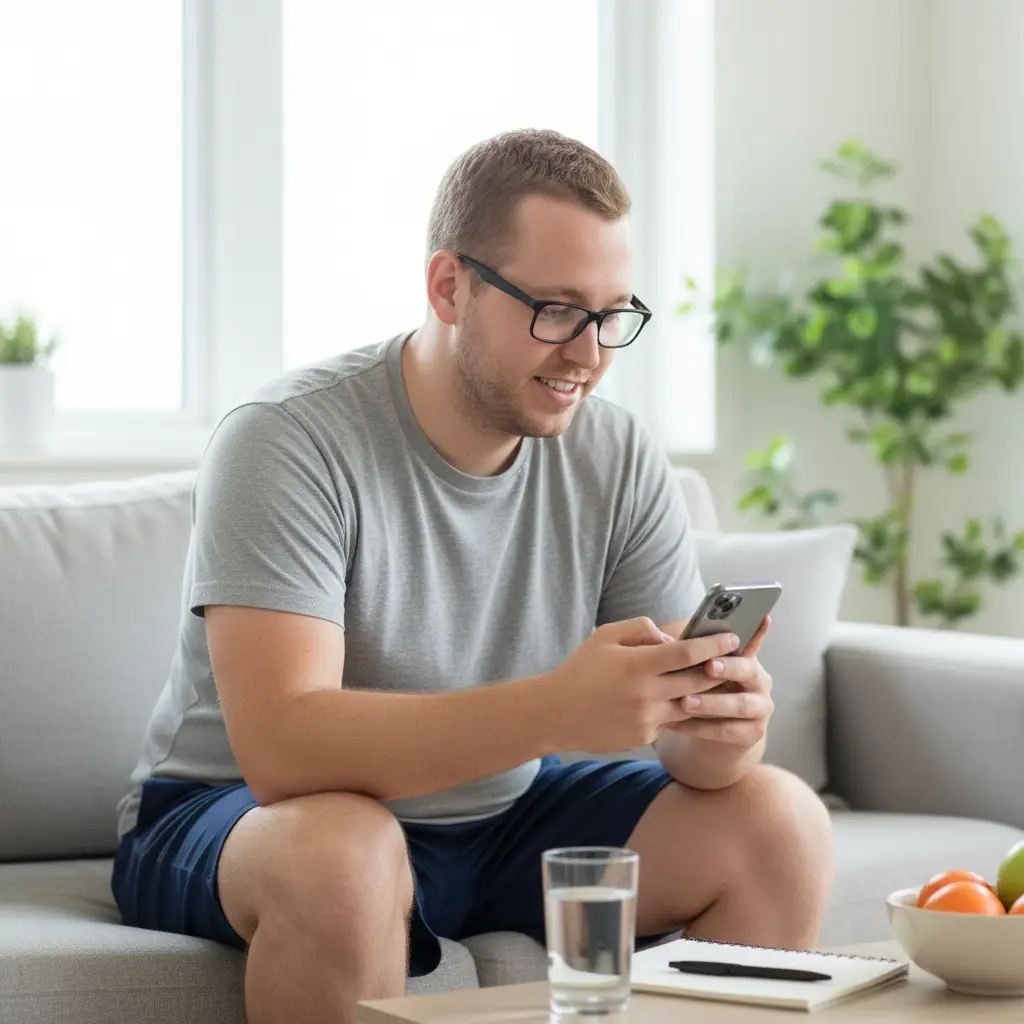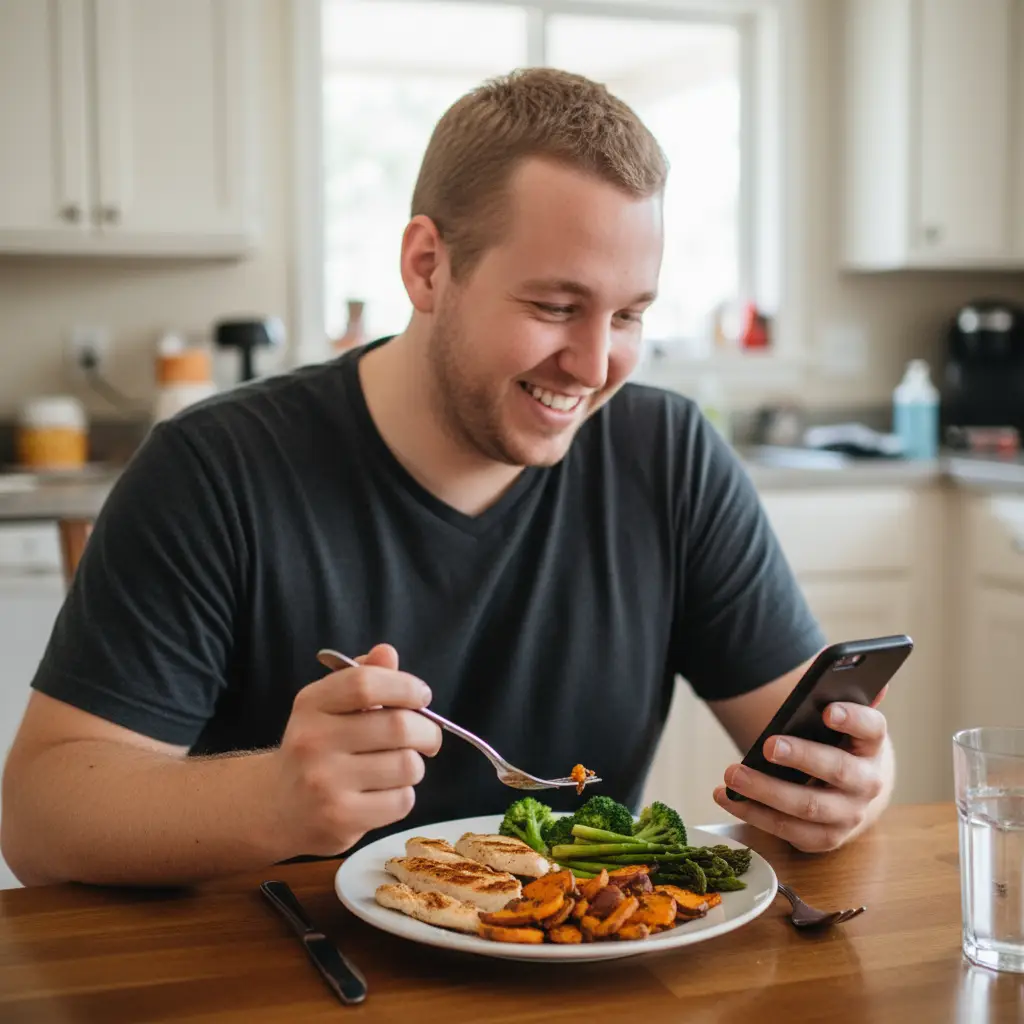Medical disclaimer: This article shares my personal experience and general information, not medical advice. Weight loss programs (including Noom) aren’t right for everyone. Talk to a qualified healthcare professional before starting any weight loss, nutrition, or medication program, especially if you have underlying health conditions, are pregnant or breastfeeding, or have a history of disordered eating.
How Noom Helped Me Finally Lose the Weight—and Keep It Off

Galen
Affiliate Disclosure: This post may contain affiliate links. If you sign up through my recommendations, I may earn a commission—at no extra cost to you.
I Thought I Was Doing Good…
Before Noom, I lived on the hamster wheel of “being good” all week and binging on weekends. I’d white-knuckle my way through a new diet until the rules felt suffocating, then rebound—hard. I knew what to eat; what I lacked was a system that helped me understand why I ate the way I did, especially when I was stressed, bored, or searching for comfort. The result was classic yo-yo dieting: fast losses, faster regains, and a growing sense of shame that maybe I just didn’t have “willpower.”
After one doctor’s visit last year my labs nudged from “fine” to “pay attention.” My weight increased by 13 pounds over the previous annual checkup, my cholesterol was sky-high at 226, Triglycerides “high” as at 170, my HDL cholesterol was low at 44, and my LDL cholesterol was very, very high at 150+. I realized I needed something different—something that addressed my health, habits and headspace, not just my plate.
I Realized I Couldn’t Make Real, Lasting Change Myself
Noom kept popping up in conversations and in my feed, always with the phrase “psychology-based.” That stood out. I didn’t need another extreme plan; I needed new thinking tools. Noom promised daily bite-sized lessons, a color-coded food system that nudged better choices without banning anything, and coach support if I wanted it. That combination felt doable, and the focus on why I eat (not just what) was the deciding factor. I figured: nothing to lose, everything to gain.
Lengthy Setup, But Worth It
Signing up for Noom was a simple quiz about my goals and habits, followed by a personalized plan. It was annoyingly long, but I get why now. They needed a lot of info to help figure out the right plan.
Ultimately my two main goals for joining Noom were to:
- Lose 35 pounds
I wanted to weigh 165 again because I felt healthy at that weight. I could then shift my focus to building muscle mass and slowly burn fat until I was at no more than 20% body fat by total bodyweight – which is generally considered healthy for men.
- Lower my total cholesterol to under 150
I chose 150 as a mark because my doctor and I agreed that was a healthy number for me. Though I would recommend you speak with your doctor about your cholesterol if that is a concerning number for you as well. Everbody is different!
What Using Noom Is Like
The daily rhythm became…comforting. Each morning I’d skim a short lesson (think: tiny mindset shifts rooted in small behavior changes), log my meals, and watch my progress line inch in the right direction. The color system helped me see patterns—where I naturally overdid it, where I could swap in more filling, lower-calorie-dense foods without feeling deprived. When I got stuck, a coach checked in with gentle, practical nudges, and the in-app community made it easier not to bail when life got messy.
Emotionally, I moved from skeptical → supported → empowered. Early on, I was bracing for “diet voice.” Instead, the lessons reframed things I’d always struggled with—like all-or-nothing thinking and “I blew it, so the day is ruined.” That mental reset mattered more than any macro breakdown.
My Turning Point
A few weeks in, one micro-lesson clicked: catch the thought → choose the action. I started noticing the “I deserve this” script after stressful work meetings, and instead of raiding the pantry, I paused. Sometimes I still had the snack; often I didn’t. That’s when Noom felt different from other diets—it wasn’t telling me what to do; it was helping me build the muscle of noticing and choosing.
The scale rewarded consistency. Losing the first few pounds created momentum, but it was the feedback loop—log, reflect, adjust—that kept it going. Research on Noom mirrors this: in a large cohort study of 35,921 Noom users, 77.9% lost weight and those who logged meals and weight more frequently did better and maintained results more consistently over time. That aligned exactly with my experience: tracking dinner and weighing in (without judgment) were small acts that compounded into real change.
Its Not Super Quick, And Its Not Flashy
Losing weight was truly a journey. I lost about a pound a week so it was over half a year of slow, but steady progress. Definitely not flashy. Now my clothes fit, my confidence is higher, and the “food noise” that pressured me to eat crap has quieted.
I’m lighter, yes, but I’m also less tired—less tired of negotiating with myself all day. The biggest win is durability: the habits stuck. Months after “finishing,” I still default to the same playbook—protein-forward breakfasts, more protein + fiber at lunch, pre-planned healthy snacks, and a quick mental check-in when emotions spike.
That carried into better energy at work, more patience at home, and a willingness to say yes to things I’d been avoiding (photographs, beach trips, you name it).
And importantly, maintenance hasn’t meant perfection. On weeks when the scale drifts up, I don’t spiral; I open the app, log honestly, and the curve bends back down.
It Worked for Me (and Might Work for You)
Here is why I felt Noom worked for me and why I think it works for others who stick to the program.
- Balanced expectations. Is it effortless? No. It requires honesty, consistency, and a willingness to look under the hood of your habits. Independent reviews note pros (psychology-forward lessons, community) and cons (calorie targets can feel low for some; coaching responsiveness can vary). For me, the benefits dwarfed the frictions.
My Noom Rating:
Weight Loss Isn’t Quick and Easy
But it is sustainable with practice and patiance with yourself.
Couple Important Notes
Noom states its programs aren’t appropriate for everyone (e.g., under 18, pregnant, underweight, or with an active eating disorder). If that’s you, talk to your doctor before starting.




